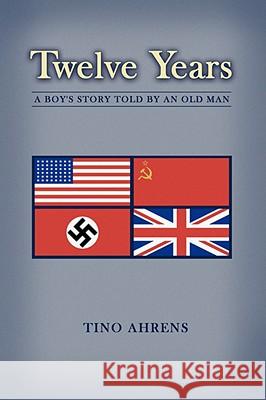Twelve Years: A Boy's Story Told by an Old Man » książka
Twelve Years: A Boy's Story Told by an Old Man
ISBN-13: 9781434331595 / Angielski / Miękka / 2008 / 260 str.
In his English grandmother's apartment in Berlin's "Old West" the writer heard Neville Chamberlain's voice coming through the radio, telling the world," Peace in Our Time." Walking with his cousin York along the fashionable "Tauentzienstrasse" the morning after "Crystal Night," York kept him from picking up some jewelry intending to put it back in a store's broken display: "Don't you see the 'SA' men? You don't want to mess with those guys." At the railroad station of the Olympic village of Garmisch-Partenkirchen he was part of a contingent welcoming Rudolf Hess, not long before Hitler's deputy flew to Scotland. During the writer's stay in a boarding school, the "Gauleiter" came to "visit." An upperclassman had pasted a Hitler stamp on the wall, his idea for the recommended Hitler portrait. He and his aunt Lindy were in a review theater on Berlin's "Kurfuerstendamm," when a news bulletin came through that an attempt had been made on the "Fuehrer's" life. But to the author and his friends Lunceford and Basie records were more important, and so was their poker club. Most wars cannot be comprehended in isolation. The Second World War is a prime example.The author goes back to the First World War and its origins. His father, whose diplomatic career began in 1914 in Japan and America, provided essential information, particularly about Americas entry into the war.The first war cast a very dark shadow across the entire twentieth century and, it is beginning to look like it, the time beyond. Among its immediate consequences was the emergence of extremist parties, leading in Germany to the Hitler government and the critical "Empowerment Law." Even so, there were several opportunities of avoiding the worst, and when the second war did brake out, it was as if it had been preordained.











